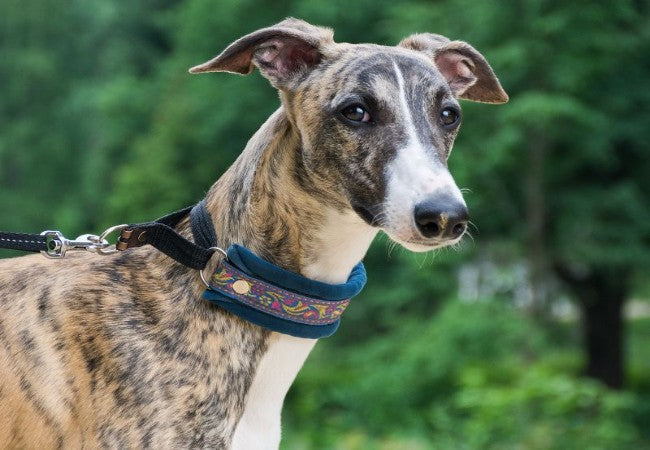Greyhound 2025 Guide: Temperament, Care & Training 🐶

In this article
Greyhound 2025 Guide: Temperament, Care & Training 🐶
By Dr. Duncan Houston BVSc
The Greyhound is a sleek, graceful dog built for speed but beloved for its calm, affectionate temperament. Known as the fastest dog in the world, Greyhounds are surprisingly low-maintenance companions and exceptional family pets. In this expert 2025 guide, we’ll explore everything you need to know about raising, training, and caring for a Greyhound. 🐾
📜 Breed Origins
Greyhounds are among the oldest known breeds, with ancestors depicted in ancient Egyptian art. Bred for hunting and coursing game, they’ve evolved into modern racing dogs and cherished companions, especially as adopted ex-racers. 🏛️
🧠 Temperament & Personality
Greyhounds are dignified, loving, and easygoing. Common traits include:
- Calm: Surprisingly mellow indoors—often “45-mph couch potatoes”
- Affectionate: Gentle and loving with family members
- Independent: May be reserved or shy at first
- Quiet: Typically non-barkers, even in apartments
🏡 Ideal Home Environment
Greyhounds thrive in calm, structured households:
- Great for both urban apartments and suburban homes
- Ideal for seniors, singles, or families with older children
- May need secure fencing—high prey drive can cause chasing
They adapt well to smaller spaces due to their calm demeanor. 🏡
✂️ Coat Type & Grooming
The Greyhound’s short, smooth coat is easy to maintain but sensitive:
- Brushing: Weekly with a soft mitt or rubber brush
- Bathing: Every 6–8 weeks or when dirty
- Ear/Nail Care: Clean ears weekly and trim nails every 2–3 weeks
Protect from cold with coats in winter—low body fat makes them sensitive.
🏃♂️ Exercise & Enrichment
While athletic, Greyhounds don’t need constant movement:
- Two short daily walks and occasional sprints in a fenced area
- Indoor enrichment toys and puzzles for mental stimulation
- Agility or lure coursing if available
They love lounging just as much as running. 🧠
🍗 Nutrition & Feeding
Feed a balanced, lean-protein diet to support muscle and metabolism:
- High-quality proteins like fish, turkey, or chicken
- Digestive support and gentle ingredients for sensitive stomachs
- Joint-support supplements for aging or ex-racing dogs
Feed twice daily. For tailored diet plans, visit Ask A Vet. 🍽️
🩺 Common Health Concerns
Greyhounds are generally healthy but may be prone to:
- Bloat (GDV): Feed in smaller portions; avoid activity post-meal
- Osteosarcoma: Bone cancer risk in older dogs
- Hypothyroidism: Weight and energy changes may be signs
- Thin Skin: Watch for scrapes and pressure sores
Monitor and screen with expert support from Ask A Vet. 🩺
🎓 Training & Socialization
Greyhounds are intelligent but gentle learners. Training tips:
- Use calm, consistent, reward-based training
- Early socialization reduces shyness and builds confidence
- Work on recall and leash skills—especially if prey-driven
🧘♂️ Emotional Needs
This breed is emotionally intuitive and bonds deeply:
- Thrive with routine and companionship
- Dislike being left alone for long hours—may become anxious
- Comfort items like soft beds or calming toys are appreciated
For behavior guidance, consult Ask A Vet. 🧠
🏁 Final Thoughts: Is the Greyhound Right for You?
If you’re looking for a quiet, gentle, and low-maintenance companion with elegant athleticism and a loving heart, the Greyhound may be your perfect match. With the right care, training, and affection, they transition beautifully from track to couch. ❤️
Need help planning your Greyhound’s care? Start a consult now at Ask A Vet!






